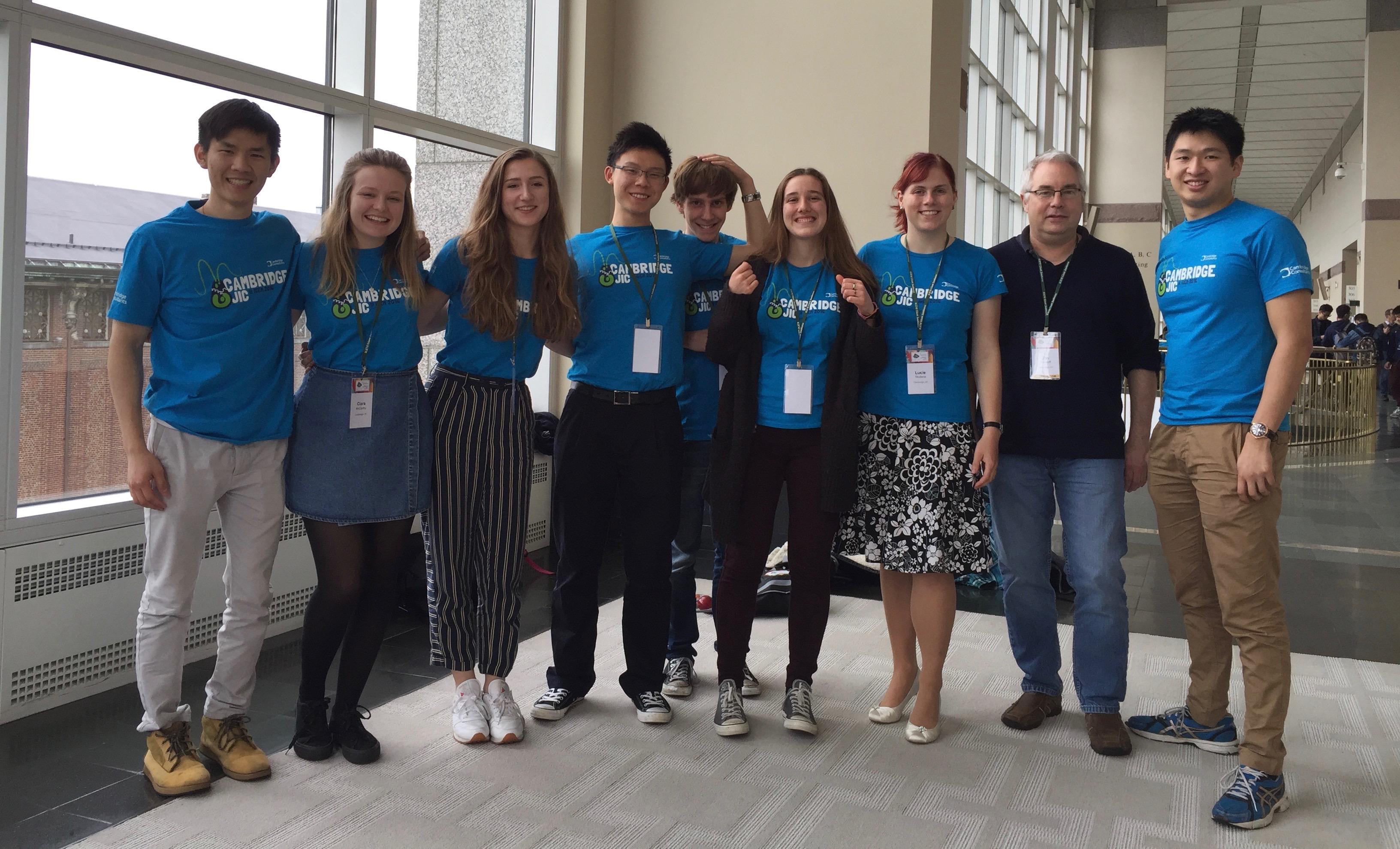
Submitted by Administrator on Tue, 15/11/2016 - 12:57
A team of Cambridge students have been awarded a Gold Medal and Best Plant Synthetic Biology Prize for their entry into the International Genetically Engineered Machine (iGEM) Competition 2016.
iGEM is a prestigious international Synthetic Biology competition designed to challenge university students from around the world. This year more than 300 teams entered iGEM and came together on 27-31 October at the annual Giant Jamboree in Boston. The Jamboree represents a culmination of a summer’s worth of work, with the teams competing for prizes while learning from experts across the world. iGEM teams are tasked with designing a genetically modified system using ‘BioBricks’, a set of standardised biological parts, with the aim of having ‘a positive impact on their communities and the world’. The competition aims to bring synthetic bology, the melding of biology and engineering – to the forefront of research, in an effort to design innovative biological systems.
This year, the Cambridge team consisted of four Engineering and six Natural Sciences undergraduates, with support from faculty member advisors in Plant Sciences, Pathology, Engineering, Chemical Engineering & Biotechnology, and Physics – as well as engineering experts Cambridge Consultants, who sponsored the team.
Together they aimed to create a toolkit for algal chloroplast engineering, a process that holds great potential for producing everything from biofuels to edible vaccines both efficiently and in large quantities. In just ten weeks the team managed to generate a library of tested parts optimised for Chlamydomonas algae, build a gene gun for less than 1/100th of the current commercial price and design a genetic tool which helps achieve transformation of all DNA contained within a chloroplast (homoplasmy) in a much shorter timeframe than previously possible. This work won them a Gold Medal and the 2016 Best Plant Synthetic Biology Prize (overgrad category).
iGEM team member Ciara McCarthy said of the project: “We met a huge variety of people working in different disciplines, and spread our ideas about our project and synthetic biology as a whole through articles and outreach events. The opportunities that iGEM has given us will continue to have an influence well beyond this summer.”
The University of Cambridge is at the forefront of the plant synthetic biology field as co-host of the OpenPlant research centre. This is the first year that iGEM has featured a Plant Prize and Co-Director of OpenPlant Professor Jim Haseloff, who organised the first UK iGEM team in 2005, delivered a popular workshop on standards and tools for engineering plants to the global gathering of young synthetic biologists. Explaining the importance of plants as ‘chassis’ for synthetic biology, and the significance of the Cambridge iGEM project, Haseloff emphasised their sustainability. “We think that biological technologies are the underpinning of the 21st century’s industrial processes,” he said. “Plants are cheap and inherently sustainable, and have a major role to play in our future.”

